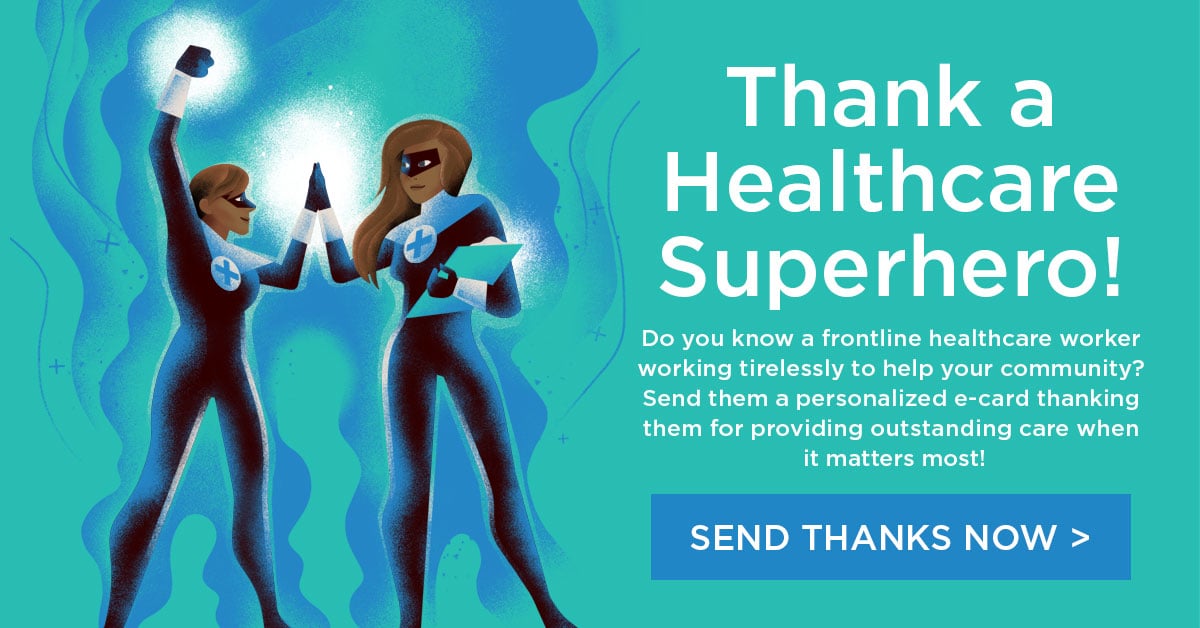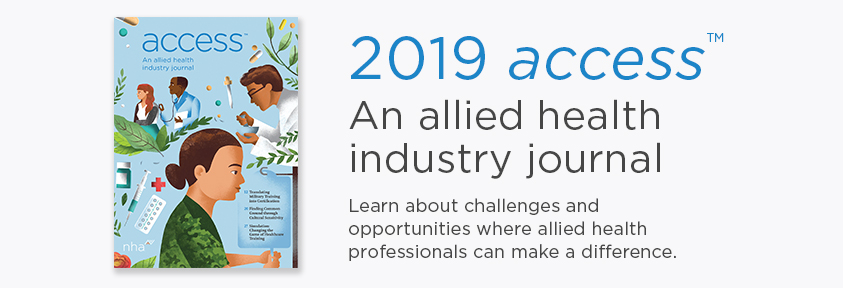In this COVID-19 era, the headlines are increasingly filled with stories that describe the challenges faced by healthcare workers on the front lines. While working to optimize patient care, healthcare organizations are also focused on how they can take care of their employees, too. By tapping into guidance from organizations like the CDC, you can encourage self-care for healthcare workers who are selflessly serving patients in their communities during this pandemic.
Self-care during COVID-19
Daily work has dramatically changed for healthcare workers since COVID-19 reached pandemic levels. Unlike anytime in recent decades, those on the frontlines are giving all that they have each and every day to make sure their patients and communities recover. That’s why self-care is so critical, yet often ignored by healthcare workers
While circumstances have changed around the need for self-care, the definition of self-care hasn’t. Simply put, self-care is anything we choose to do to take care of our mental, emotional and physical health.
Healthcare workers often struggle with prioritizing self-care over patient care. Because their work is critical—especially now—choosing to prioritize one’s self may bring on feelings of guilt. The reality, though, is that self-care refuels healthcare workers to continue to persevere through even the most grueling days.
If your staff is giving all they can, here are a few ideas on how you can support them by encouraging self-care.
Focus on protecting the physical health of frontline healthcare workers
One of the most important ways you can promote self-care for your healthcare workers is by helping to protect their physical health as they are providing care to patients with a confirmed or suspected infection with COVID-19.
First and foremost, ensure that your healthcare workers have adequate personal protective equipment (PPE). Reported shortages across the U.S. are proving to be a challenge, but the CDC provides strategies to optimize the supply of PPE and equipment.
Physical health also depends on rest—during shifts and between shifts. While staffing can be challenging with heavy patient loads, urge your team to take breaks during shifts when needed. Even better —encourage them to urge one another when they see a coworker needing a few minutes to recharge.
Ensure your healthcare workers have adequate time off between shifts for rest and renewal. It’s not only in their best interests but also the best interests of their team members and patients.
As circumstances continue to evolve with COVID-19, guidelines from the CDC, your state, county or city may shift. Stay informed about the latest guidance at the federal and state levels.
Supporting mental health
In addition to the need for support to promote physical health among healthcare workers during the COVID-19 pandemic, it’s important to consider the amount of stress they are experiencing, offering support for mental and emotional health.
As the U.S. Department of Veterans Affairs (VA) National Center for PTSD notes:
“The wellbeing and emotional resilience of health care workers are key components of maintaining essential health care services during the COVID-19 virus (coronavirus) outbreak. Therefore, it will be crucial to anticipate the stresses associated with this work and put in place supports for health care workers. Monitoring and assessment of mental health and wellbeing of health care personnel will be important, along with efforts to ensure their successful reintegration with work colleagues, should they themselves become infected.”
Healthcare workers need both institutional support and self-care strategies to make sure they receive the support they need. Below are suggestions from the VA National Center for PTSD for recognizing and reducing stress.
Fighting stress through preparedness
In a situation that often feels out of control, demonstrating to your staff that leadership is preparing may help reduce their stress. According to the VA, this can be addressed by providing frequent trainings regarding issues such as details about transmission of the COVID-19 virus; using the most appropriate screening framework; the use of PPE; implementing quarantine and isolation guidelines; and ethical decision-making about triage and surge capacity issues.
Recognizing and addressing stress in healthcare workers during an outbreak
While you may not be able to pinpoint each person’s cause for stress, you can recognize the real impact of stress on healthcare workers.
Those treating patients with the COVID-19 virus face a long list of potential stressors, including the need to employ strict biosecurity measures; the risk of disease transmission; multiple medical and personal demands; and stigma on a variety of levels.
Communicate that you recognize how stressful this situation is for them and offer your support daily.
Coping strategies during the outbreak
Since healthcare workers may prioritize the needs of others over their own, promoting self-care during the pandemic may be challenging. In this light, the VA recommends a multi-faceted and phased approach that may provide a sense of control as they provide patient care while reducing feelings of personal responsibility for patients lives.
Strategies to help mitigate mental stress during work shifts include:
- Self-monitoring and pacing
- Regular check-ins with others
- Working in partnerships or in teams
- Brief relaxation/stress management breaks
- Regular peer consultation and supervision
Dealing with stress in the aftermath of the outbreak.
While the daily stress of providing patient care during this pandemic should be a priority, employers also need to plan for what happens after the peak. The VA says that healthcare workers who have cared for patients with COVID-19 will likely need a period to readjust after the outbreak is over and should make “personal reintegration” a priority. Strategies you can support include:
- Providing opportunities for healthcare workers to seek out and share social support
- Check in on your team members and encourage them to do the same with their colleagues to discuss work experiences
- Increase supervision, consultation, and collegial support
- Encourage your team to schedule time off work for gradual reintegration into their personal lives
The VA National Center for PTSD recommends that “if stress persists for longer than two to three weeks and interferes with functioning, healthcare workers should consider participating in formal mental health treatment.”
The full list of the Center’s recommendations can be found here: Managing Healthcare Workers' Stress Associated with the COVID-19 Virus Outbreak.
Healthcare organizations face a daunting challenge within the COVID-19 era to provide optimal care for the patients who need them while also caring for their employees who are on the front lines. By tapping into guidance from national and world organizations helping to lead the fight, you can encourage self-care for the healthcare workers within your ranks.
9 Additional Resources to Help Your COVID-19 Efforts
- Information for Healthcare Personnel
- Resources for Hospitals and Healthcare Professionals Preparing for Patients with Suspected or Confirmed COVID-19
- Resources for Clinics and Healthcare Facilities
- Personal Protective Equipment (PPE) Burn Rate Calculator
- Free Communication Resources
- Mental Health Considerations during COVID-19 Outbreak
- Managing Healthcare Workers' Stress Associated with the COVID-19 Virus Outbreak
- Managing Anxiety & Stress
- Interim Guidance for Community and Faith-Based Organizations





